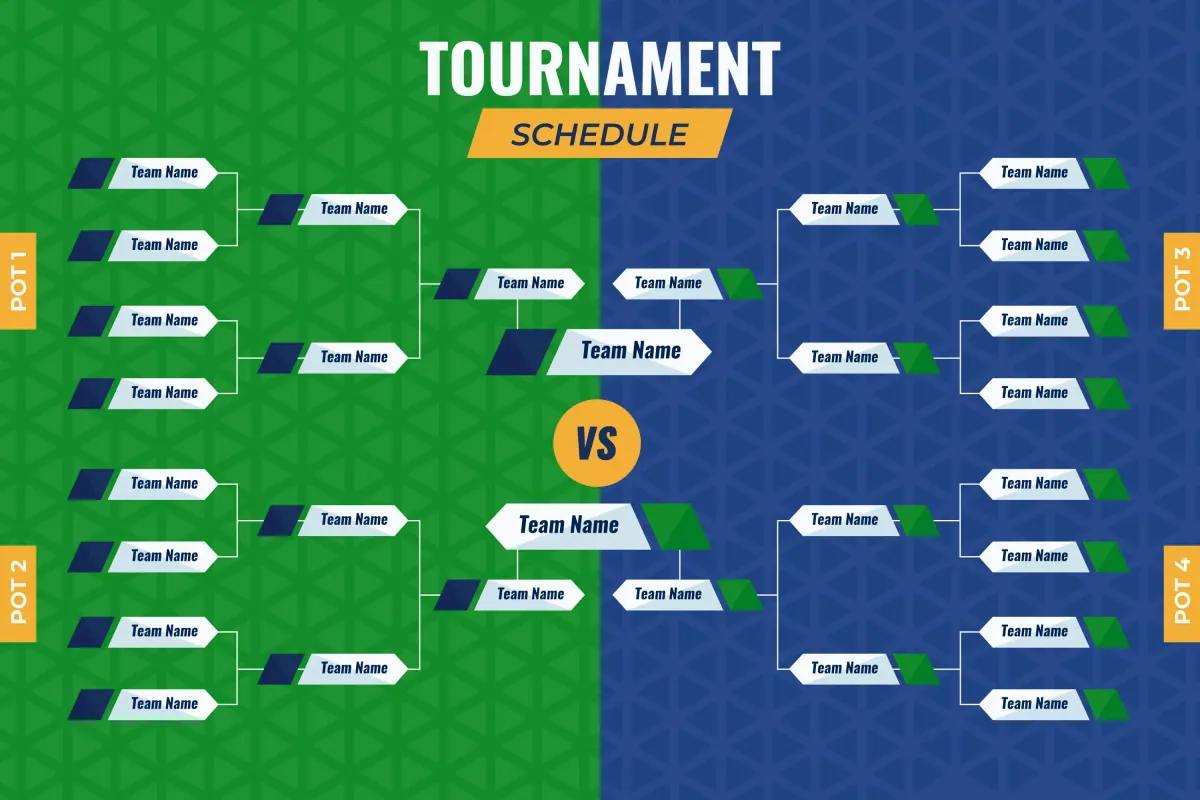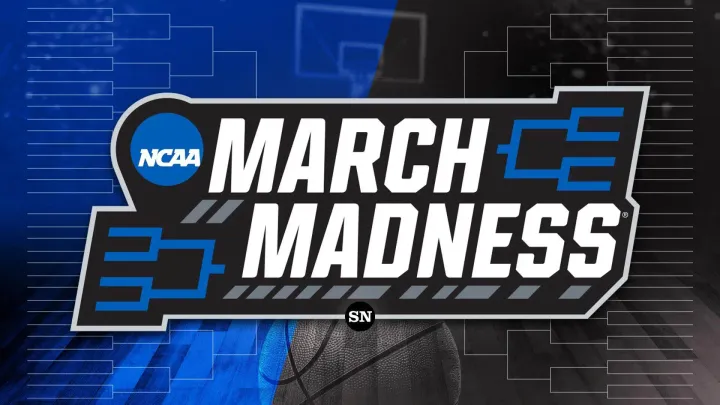League Scheduling Software: How Well Does It Serve Your Needs?
League scheduling software revolutionizes sports organization. Automate schedules, engage fans, and optimize performance with streamlined management.

Sports league and event management is a complex process that requires careful preparation, strategic collaboration, and effective execution. The capacity to plan games, practices, and tournaments in a way that makes sense for teams, players, and spectators is essential to any sports organization's success. It is impossible to overestimate the significance of using reliable league scheduling software in the competitive and fast-paced world of today.
The foundation of sports management is league scheduling software, which provides an extensive feature set and a wide range of tools to simplify the complex process of planning and arranging sporting activities. With features like auto-scheduling, real-time updates, and performance tracking, league scheduling software gives organizers the tools they need to run their leagues and teams more successfully, increase fan involvement, and maximize efficiency.
Understanding League Scheduling Software
League scheduling software is a complete application that makes the complicated task of monitoring schedules, scheduling games, and coordinating different league operations easier and more efficient. Fundamentally, league scheduling software helps organizers run their leagues and teams effectively by automating processes like practice scheduling, game scheduling, tournament scheduling, and more.
One of the main purposes of league scheduling software is to schedule games. This entails planning and overseeing the season's game calendar, which includes choosing the dates, times, venues, and lineups. Organizers can quickly create game schedules using league scheduling software by putting certain limits and criteria, like venue availability, team preferences, and travel concerns, into account. All parties benefit from a time-saving and less likely scheduling conflict thanks to this automation, which also makes the season go more smoothly and efficiently.
League scheduling software not only helps with game scheduling but also with practice scheduling, which is crucial for teams to be ready for forthcoming contests and games. The software allows organizers to schedule practice sessions and locations, communicate with players and coaches, and guarantee that teams have enough time to hone their talents. League scheduling software helps teams manage their training regimens and maximize their effectiveness on the court or field by automating practice scheduling.
League scheduling software also makes it easier to schedule tournaments, which is another crucial component of league management. Several teams compete in different rounds or stages during tournaments, which might be difficult to manually arrange. League scheduling software makes it simple for organizers to plan games, make brackets, and oversee the tournament's progress from beginning to end. This guarantees that competitions function smoothly and effectively, giving both competitors and spectators an unforgettable experience.
League scheduling software does more than just schedule; it also automates ticketing systems, roster administration, and performance tracking for games. Organizers may keep up-to-date rosters of players and teams, complete with contact details, positions, and eligibility status, thanks to roster management capabilities. By doing this, teams may be sure they are legitimately registered and qualified to play in matches and competitions. Using ticketing systems, event planners can sell tickets online for games and other events, which expedites the fan ticketing process and brings in money for the league. Lastly, by keeping tabs on critical metrics like attendance, scores, and statistics, organizers can gain important insights into the success of their events and games.
Key Features to Look For
It's critical to take into account a number of important characteristics when assessing league scheduling software in order to ensure that it meets the unique demands and specifications of your company. Depending on your league's size, complexity, and the sports or activities it involves, these aspects may change. That being said, there are a few key components to consider while choosing league scheduling software.
Any league scheduling program needs to have the ability to autoschedule. With the help of this function, creating game schedules is automated according to pre-established standards and limitations, including team preferences, venue availability, and travel considerations. Auto-scheduling ensures a seamless and well-organized season for all parties concerned by saving time and lowering the possibility of scheduling disputes.
Customizable game scheduling options are another important feature to consider. This allows organizers to tailor game schedules to meet the unique needs and preferences of their league and teams. For instance, organizers might have to modify game schedules and places in response to input from teams or venues, or they might have to make accommodations for special events like league events or the Cubs schedule. Organizers may design schedules that suit all parties involved with the freedom and control that customizable game scheduling options offer.
For teams, participants, and organizers to be updated about schedule modifications, game outcomes, and other crucial information, real-time updates are crucial. To make sure that everyone is aware of changes and can react promptly to them, look for league scheduling software that provides real-time updates via SMS, email, or mobile app alerts.
Another important factor to take into account when choosing league scheduling software is integration with other systems and platforms. This makes it possible for organizers to easily incorporate scheduling data with other platforms and systems, like tools for performance monitoring, ticketing, and registration. Processes are streamlined, redundant work is decreased, and data consistency and updating are guaranteed across all platforms and systems through integration.
Meeting Specific Needs: Customization and Flexibility
Flexibility and customization are critical features of league scheduling software. Every sports team, league, and event has different needs and requirements, which might change depending on the sport, amount of competition, number of teams participating, and logistical variables like venue availability and travel restrictions. Consequently, it's critical to select league scheduling software that provides scalable solutions catered to your organization's unique requirements.
The flexibility to adjust schedules to meet unique events or conditions is a crucial component of customisation. For instance, the software should make it simple for you to change the game times and venues if a team in your league has a very hectic schedule, like the Cubs, which coincides with league games. In a similar vein, the software ought to include flexible scheduling choices so that your league can hold tournaments or other special events during the season without interfering with the usual schedule.
When it comes to overseeing several sports or activities within the same league, flexibility is also essential. A youth sports organization might, for instance, provide a variety of sports programs, each with specific scheduling requirements, like baseball, basketball, and soccer. These varied demands should be supported by the league scheduling software, enabling coordinators to design and oversee schedules for various sports programs on the same interface.
Customization should encompass not only schedule flexibility but also other areas of league management such ticketing systems, roster management, and performance tracking. In addition to tracking attendance and participation, organizers should be able to adjust rosters to include player information, team connections, and eligibility status. Similar to this, ticketing systems must to be adaptable to various event kinds, costs, and seating arrangements, and tools for performance monitoring ought to enable organizers to monitor and evaluate important data including attendance, statistics, and scores.
Giving organizers the freedom to design schedules and oversee league operations in a way that best suits their organization's unique requirements and preferences is the ultimate aim of customization and flexibility. You may enhance productivity, streamline procedures, and guarantee the success of your league and teams by selecting league scheduling software that provides customizable solutions suited to your organization's particular needs.
Streamlining Operations: Improving Efficiency
When it comes to running sporting leagues and tournaments, efficiency is crucial. To secure the success of their leagues and teams, organizers may maximize efficiency, minimize administrative workloads, and streamline operations with the correct league scheduling software.
Automating manual tasks like practice, tournament, and game scheduling is one of the main ways that league scheduling software increases productivity. League scheduling software allows organizers to generate schedules in minutes, saving time and decreasing the possibility of errors or conflicts. This eliminates the need for organizers to spend hours or even days manually producing schedules and negotiating with teams and venues.
Moreover, automated scheduling enables planners to maximize facility and resource usage and resource optimization. To guarantee that teams have access to the facilities they require without overbooking or double-booking, the software can automatically assign practice times depending on availability and demand, for instance, if numerous teams share a practice facility.
League scheduling software simplifies roster management, ticketing systems, performance tracking, and other league administration tasks in addition to scheduling. The program allows organizers to sell tickets online for games and events, keep track of important metrics like attendance, statistics, and scores in real-time, and keep up-to-date rosters of players and teams. By automating tasks, administrators can save time and effort, increase precision, and concentrate on other league management responsibilities.
Software for scheduling leagues also fosters better coordination and communication between teams, organizers, and players. Organizers may ensure that everyone is aware of schedule changes, game results, and other crucial information by providing features like team chat, real-time updates, and smartphone notifications. This allows everyone to stay informed and responds promptly to any changes or updates.
Case Studies: Real-World Examples
Analyzing actual case studies of league scheduling software implementations can yield important insights regarding the usefulness and effects of the program on sports organizations. These case studies demonstrate the ways in which league scheduling software has aided in increasing productivity, streamlining processes, and boosting sports leagues' and events' overall success.
1. Youth Soccer League
A youth soccer league was having trouble keeping track of the practice and game schedules for all of its many teams, which were divided into several age groups. It took a lot of effort and time to put together a coherent timetable because there were few fields available and teams had different schedules. With the help of auto-scheduling software that the league used, organizers were able to rapidly and effectively create schedules for games based on pre-established parameters. Additionally, the software made it possible to alter the venues and game times to suit team preferences and special occasions. The league experienced a considerable decrease in scheduling issues as a result, more team and participant communication, and higher attendance at games and events.

2. Adult Softball League
An adult softball league was struggling to attract participants and increase attendance at its games and events. Organizers recognized the need to improve the overall fan experience and engage fans more effectively. The league implemented league scheduling software with live streaming integration, allowing organizers to broadcast games and events to fans around the world. Throughout the season, the program also provided fans with features like smartphone notifications and real-time updates, which kept them informed and involved. The league also used gamification techniques to reward devoted fans and encourage their engagement. The league observed increased attendance at games and events, a more active and passionate fan base, and a notable boost in fan engagement as a result.

3. High School Basketball League
A high school basketball league was having trouble keeping track of the dates of its many teams' games and competitions across several levels. The scheduling of teams playing in various venues and locales was a logistical challenge. Organizers were able to design and oversee schedules that were customized to meet the unique requirements of every division and team thanks to the league's implementation of scheduling software. Moreover, the program integrated with ticketing platforms, enabling event and game organizers to sell tickets online. As a result, there were fewer schedule issues, more team and organizer contact and coordination, and higher ticket sales revenue for the league.
Choosing the Right Solution: Considerations and Tips

It's crucial to take a number of things into account when choosing league scheduling software for your company to make sure you get the best fit. Here are some things to think about and pointers to remember:
-
Examine your organization's needs and requirements
Give careful thought to your organization's unique needs and requirements before deciding on league scheduling software. Think about things like your league's size and complexity, the sports or activities you play, and any unique situations that need to be taken into account. -
Consider features and functionality
To best serve your organization's needs, search for league scheduling software that has an extensive range of features and functionality. Take into account features like the ability to schedule automatically, the ability to customize the schedule, real-time updates, connectivity with other platforms and systems, and tools for fan interaction. -
Think about implementation and convenience of use
Select league scheduling software that is user-friendly and intuitive for teams, organizers, and players. Take into account elements like accessibility across platforms and devices, ease of navigation, and user interface design. Take into account the simplicity of implementation as well as the interoperability with current procedures and systems. -
Examine providers and reviews
Invest some time in investigating providers of league scheduling software and reading testimonials from other sports leagues that have utilized their services. Seek out suppliers who have a proven track record of accomplishment and satisfied clients, and think about getting in touch with them personally to go over your company's wants and specifications. -
Gain support from relevant parties
Include important parties in the decision-making process, such as coaches, teams, league administration, and participants. Make sure the program satisfies their needs and expectations by getting their opinions on the features and functionality they most need.
After you've decided on league scheduling software, make sure to budget for training and assistance to guarantee a seamless adoption and implementation process. Organizers, teams, and participants should get training sessions. Ongoing support and help should also be provided to handle any queries or problems that may come up.
Conclusion
To sum up, league scheduling software is essential to the efficient administration of sports leagues and events. League scheduling software saves time, lessens administrative burdens, and maximizes efficiency to ensure the success of leagues and teams by automating tasks like practice, game, and tournament scheduling; streamlining operations; improving fan engagement; and tracking performance metrics. Through strategic solution selection and application of best practices, organizations can engage fans, optimize workflows, and produce an experience that is both gratifying and memorable for all parties.


